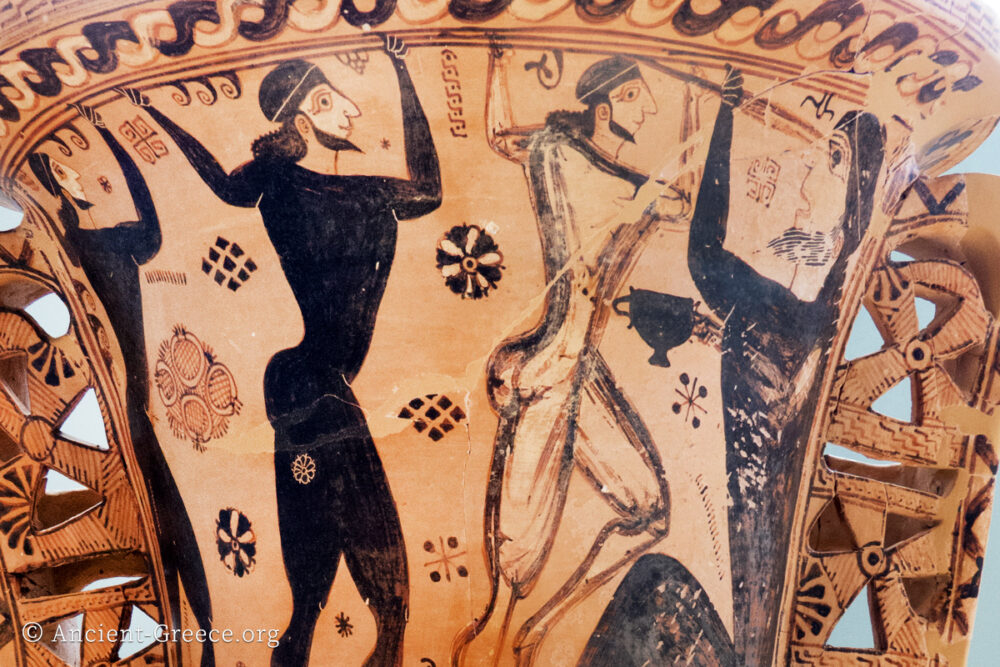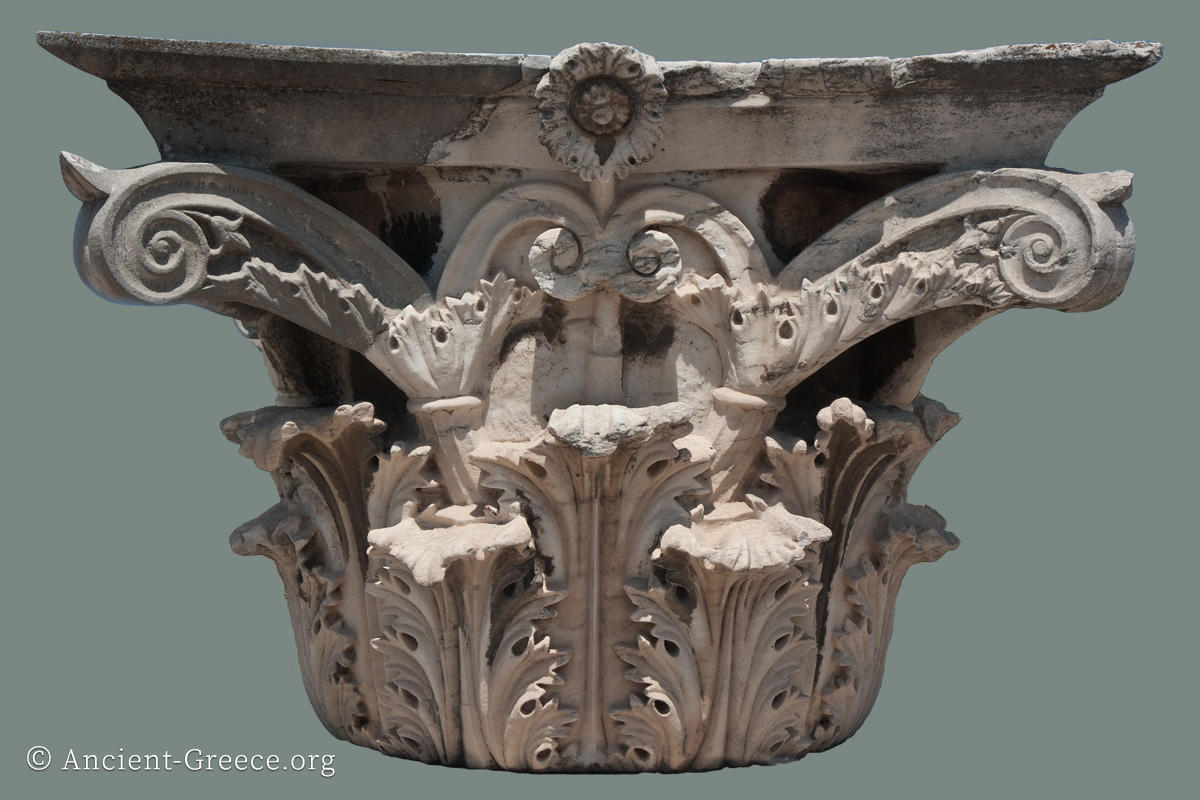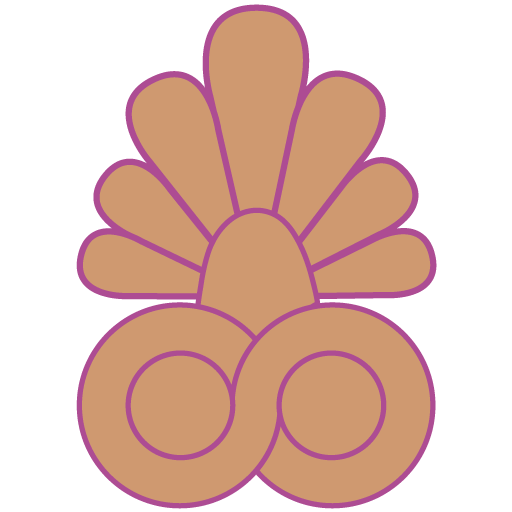
On this page:
The ancient Greek spiritual beliefs, religion, and oral tradition are all reflected and formulated through rich myths and legends that besides entertainment provided an articulation of Greek civilization’s moral fiber, as it evolved over the centuries.
Above all, mythology is a tapestry woven of profound, outrageous, fantastical, delightful, saucy, and hilarious, didactic stories that have universal appeal.
Taken as a whole, “mythology” today represents the bulk of what we know as pagan religion mixed in with the ancients’ oral traditions and heritage. The concept of “History” was born in the 5th c. BCE with Herodotus’ writings, so prior to that stories were transmitted orally from generation to generation.
Deities often were connected with stories involving heroes, mortals, and landmarks. Ancient Greece did not have an “organized” religion as we understand it today. The physical landscape was animated with wild tales, and it was natural for people to worship as many deities as they pleased. By the end of the Roman Empire, the tales were supplanted, and often erased, by other religions that spread through the eastern mediterranean.
But mythological tales were so interwoven in Greek culture, and so rich in literary and moral value, that they survived over the centuries in bits and pieces embedded in literature and art.
With their original religious meaning evaporated, the tales were distilled in the last few hundred years as “mythology”.
The word mythology is derivative of Mythos (Μῦθος), meaning a tale or a story.
Mythological stories have survived through ancient art, literature, and plays, and they continue to evolve as contemporary art, literature, and media find inspiration in their plots and ideas, spinning new versions and fresh approaches to the 3000-years old stories.
Alphabetical Index
From: Berens, E.M. The Myths and Legends of Ancient Greece and Rome. New York: Maynard, Merril, & Co., 1880. Text in the public domain.
Alcmene • Ananke • Antiope • Aphrodite • Apollo • Ares (Mars) • Asclepius • Artemis • Atalanta • Ate • Athena
Daedalus • Danae • Demeter • Dionysus
Ganymedes • Ge • Gigantomachy • Glaucus • Gorgons • Graces (Charities) • Graeae
Hades (Pluto) • Harpies • Hebe • Hecate • Helios (Sol) • Hephestus • Hera • Heracles (Hercules) • Hermes (Mercury) • Hesperides • Hestia • Horae • Hymen
Icarus • Io • Ion • Iris • Ker • Leda • Leto • Leucothea
Metis • Minotaur • Mnemosyne • Momus • Morpheus • Muses • Myrae
Nemesis • Nereus • Nike • Nymphs • Nyx
Pan • Pegasus • Phorcys & Ceto • Plutus • Poseidon • Priapus • Proteus
Satyrs • Selene • Semele • Sirens • Sphinx
Thanatos & Hypnus • Thaumas • Themis • Theseus • Theseus and the Minotaur • Themis • Triton • Tyche
Bridging Ancient and Modern times
In ancient times these stories and characters appear often in all cultural activities, from art and architecture, to theater and the written texts.
While oral traditions recede to the depths of time, certainty of Greek mythology’s record is found in Bronze Age art and Linear B tablets dating back to 1400 BCE. Awaited decipherment of Linear A might bring older accounts to light.
This is a period coinciding with the late Minoan and Mycenaean eras, and is called “Age of Heroes” because many of the most renown heroes of mythology, like Heracles, Theseus, the Trojan War, and many others, originated at that time.
During the Bronze Age, these stories were circulated and transmitted from generation to generation through a robust oral tradition. Once the Greek Alphabet was established in the Iron Age, around the 8th century BCE, mythological themes were recorded systematically in writing.
Greek mythology remained a source of inspiration for centuries in Ancient Greece, and much of it was adopted by the Romans who cherished its stories well into the middle of the first millennium of the common era.
But mythology did not end with the Roman empire’s demise.
Our night sky is alive with heroes and legends from Ancient Greek mythology manifested by constellations, stars, planets, and moons. Man flew to the moon on an Apollo chariot.
Mythological themes permeate western culture despite their age, simply because they speak of the eternal human questions of existence, self-determination, purpose, and above all, the complexity of human relations and social conventions. They speak of good vs evil, and about man’s hopes and fears.






















